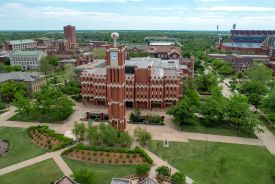3 Key Reasons Why Americans Question the Value of Higher Education
Many Americans see higher education as financially burdensome and disconnected from real job readiness.
ByInflation, housing crisis, lack of job security—these are what most common Americans face that pushes them into jumping straight into employment as long as it pays enough to keep them alive. This, however, places higher education at risk.
Many still recognize the importance and opportunity that comes with college diplomas, but even they are already pulling away from the hard fact that these degrees are worth the financial, emotional, mental, and physical investment.
In an explanation by the Chronicle, here are 3 key reasons why Americans question the value of higher education.
Costs
Besides rising consumer prices, college tuition also spiked to record highs, leaving students with billion-dollar debts. Colleges explained that they have raised fees to fund expansion and cover operational costs, all of which the US government cannot entirely cover. This strain led to a public perception that a college degree might not be worth the financial sacrifice since it takes years to pay off debt accumulated from student loans, especially for those who came from low-income families.
Read more: Why Higher Education Must Equip Future Graduates to Learn and Control AI's Expanding Impact
Mismatched Careers
Traditionally, colleges are seen as a gateway to better career opportunities and earn high. However, there's a distorted connection between a degree and a high-paying job. In fact, some who went to medical school earn less than a dropout who makes videos on YouTube or other streaming platforms.
Fortunately, over time, employers are now increasingly open to skills-based hiring, opening doors to non-degree pathways to be accessible.
Lack of Training
For the Chronicle, the narrative that college should be able to be your pass to jobs related to your skills in those 4 years is no longer the truth. There are entry-level jobs nowadays that would prefer someone with at least 1-year experience, which is impossible for someone who focused on their course rather than those who found side jobs.
Some even require practical skills that most colleges don't offer, which makes students spend another time trying to learn other skills. But by the time they were able to master it, it was no longer what the world needed.
Currently, most would say that there's a mismatch between academic preparation and career readiness that one simply cannot get from schools. This makes college more of an optional choice, rather than an essential one. What higher education can do is adapt to modern expectations, regardless if it will be too fast-paced, and offer flexible learning solutions. Otherwise, more of these public sentiments will only grow and in the near future, no Americans will no longer enroll in college.
© 2025 University Herald, All rights reserved. Do not reproduce without permission.









